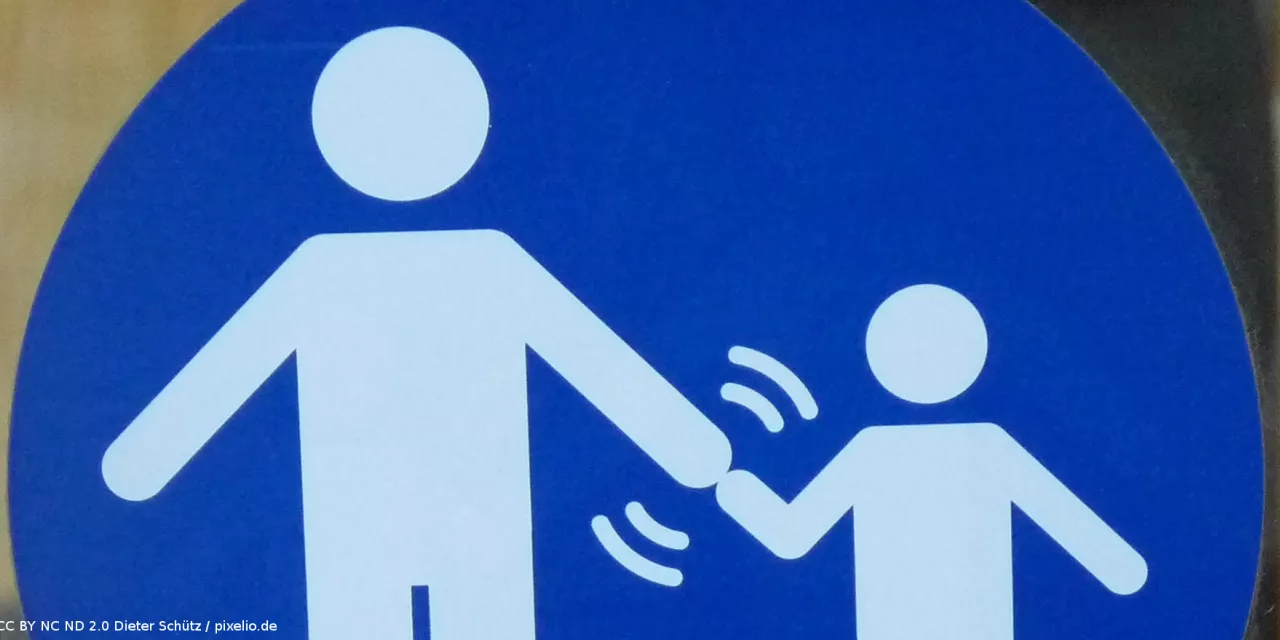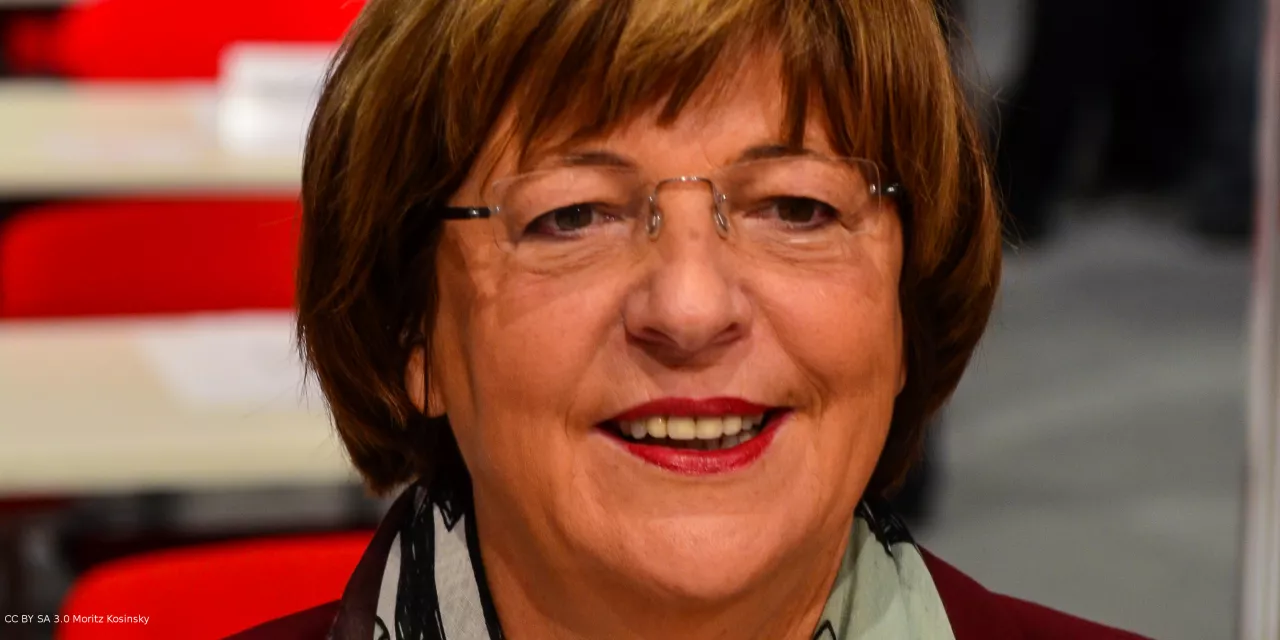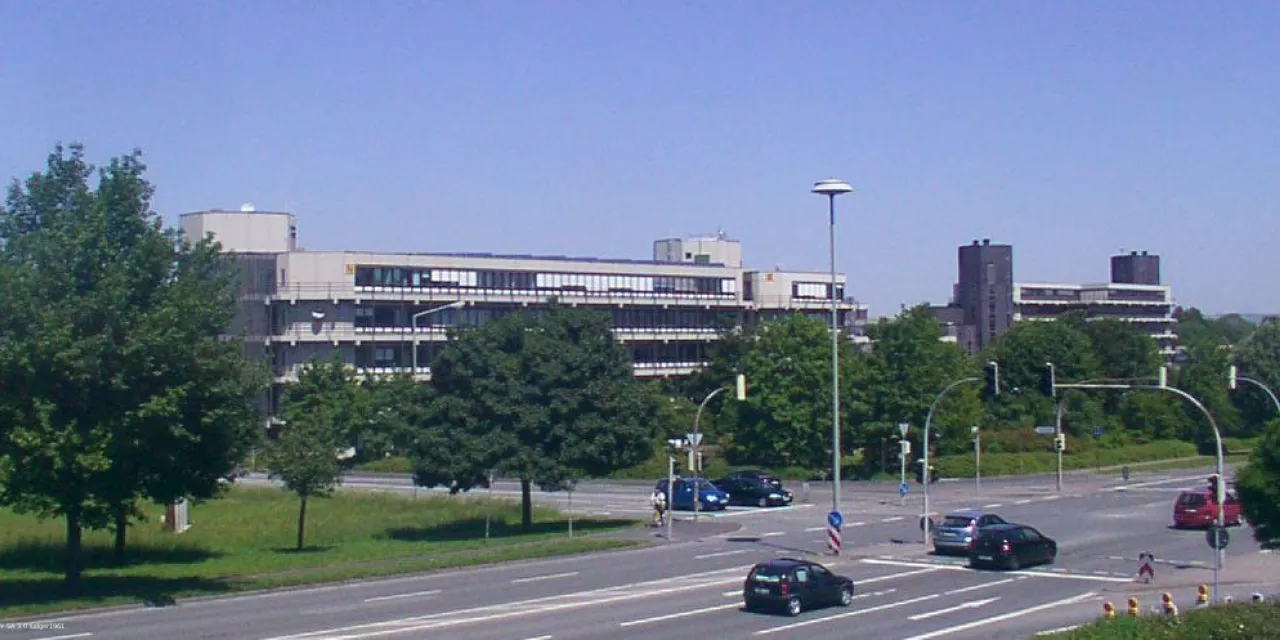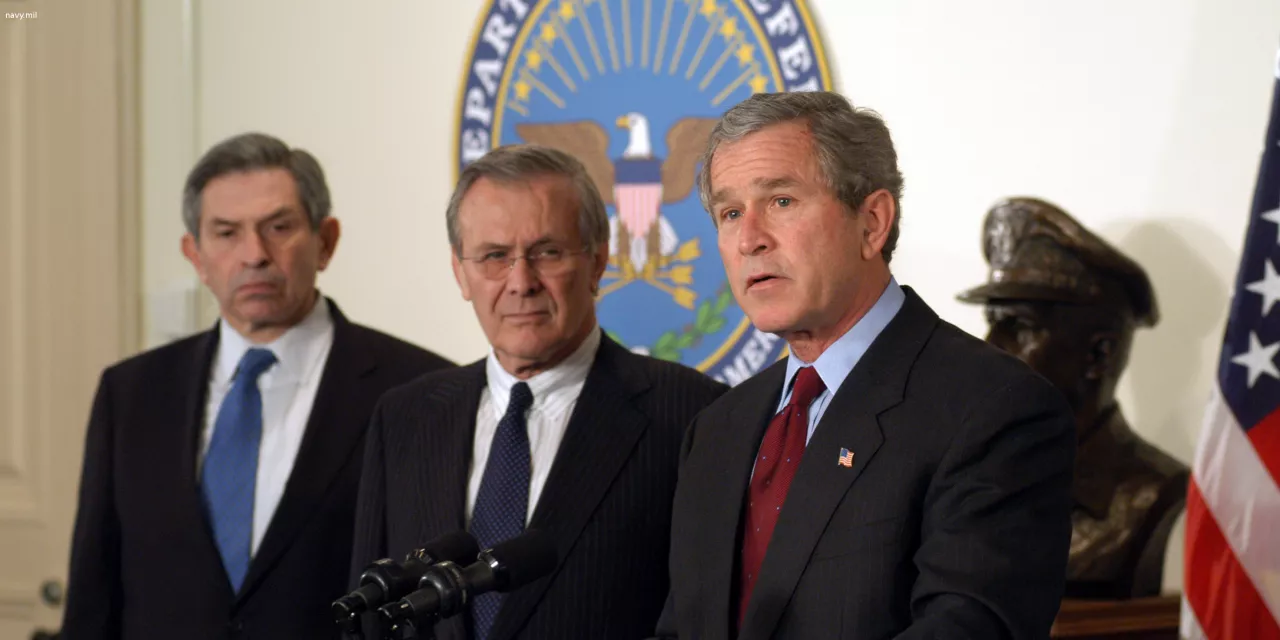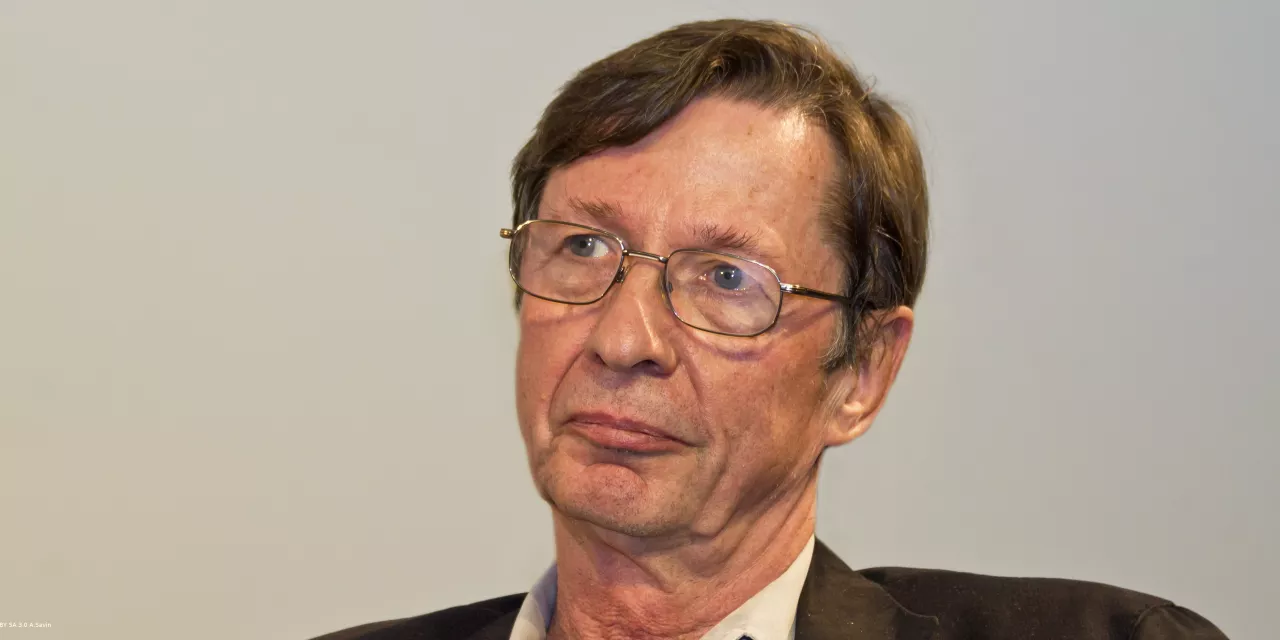The BigBrotherAward 2005 in the "Lifetime Achievement" category goes to the (former) Federal Minister of the Interior Otto Schily (Social-Democratic Party, SPD).
Otto Schily has this year received the most nominations by far - just like he did in 2001, when he won the BigBrotherAward in the "Politics" category for his "Otto catalogue" (a pun referring to the well-known catalogue of Germany's biggest mail order company, as well as a package of security laws introduced by Schily). Within the jury there was wide agreement that this year Schily, as his political career is probably coming to an end, has truly earned the Lifetime award for his "merits" of many years. Still, we are much aware that by honouring him with this negative award we can hardly do justice to a personality as colourful as Otto Schily, or to his complete life effort. We regret that of the wealth of his impressive projects and initiatives, we can venerate only a selection today.
Otto Schily receives the Lifetime BigBrotherAward of 2005
- for the hasty introduction of biometric e-passports, with immature technology and without parliamentary authorisation;
- for his "services" to the extension of European surveillance structures, at the cost of civil rights and liberties;
- for his untiring endeavours to undermine data protection and informational self-determination, under the pretence of advancing security and fighting terrorism - see his anti-terror laws or "Otto catalogues" (a pun explained in the first paragraph above);
- for his essential contributions to the "Major Eavesdropping Attack" (Großer Lauschangriff, the German name for audio surveillance being used on private homes in the course of state investigations), and
- for his assaults on the independence of the Federal Data Protection Commissioner.
Among our laureate's major obsessions is the registration of digitalised biometric features in identity documents. As early as 1 Nov 2005, in other words, in a few days, the Federal Republic of Germany will become the first EU country to include such data in their passports. A contact-less RFID chip that can be read through radio transmissions will store personal details as well as a facial scan, and two digital fingerprints will be added in March 2007. Storing more features such as an iris scan or a genetic fingerprint is possible. The next step will be the introduction of a biometric ID card. (It is a legal requirement to carry one's ID card in Germany.)
With bold disregard of parliaments and data protection concerns and without public discussion, Schily has pushed his favourite project through on the European level - bypassing the German parliament, without a democratic mandate. Rather than giving parliament an opportunity to consider the consequences for data protection and civil rights, he forced a European directive, which achieves immediate legal status in all EU countries. In this way, Schily managed to circumvent § 4 of the German passport law which required the Bundestag (the Lower House in Germany's federal parliament) to pass a law determining the biometric data to be stored.
And it's not just us who regard Otto Schily's actions as deeply undemocratic. When the Federal Data Protection Commissioner, Peter Schaar (of the Green party) criticised this hasty introduction of e-passports through the European back door and called for a comprehensive security concept for protecting the data, Otto Schily accused him of abusing his position. It was not within Schaar's brief to judge the expediency and timing of introducing biometric features, Schily rebuked him via Deutschlandfunk radio and recommended him, overbearingly, to exercise "more restraint", and make sure not to continue abusing his position with uncalled-for objections.
With these self-righteous attacks on the independence of the Data Protection Commissioner, an advice-resistant Otto Schily obviously wanted to silence a competent critic in his own area of responsibility. But it is among the Data Protection Commissioner's duties to make the concerned public aware of the fact that until today there is no open risk analysis assessing potentials of system failure or abuse in biometric passports. A study by the German Authority for Security in Information Technology (Bundesamt für Sicherheit in der Informationstechnik, BSI) says the new technology is neither ready for use nor mature. Face recognition, for example, is very error-prone, if only for the reason that faces change considerably over the years. Thousands of people every day, it must be feared, will be rejected at airports and restricted in their freedom to travel because their digital photos or fingerprints will not be accepted by the software or not pass comparison with their real-life original. The people affected will probably be under burden of proof, and in the worst case come under awful suspicion. Schily is knowingly accepting that risk.
Electronic passports are open to abuse as well as failure. The biometric data can be read at all control points at home or abroad - and the person affected won't know who has access to this sensitive data or what will be done with it. And with the RFID reading process being contact-less, "over the air" and therefore impossible to notice, it can't really be ensured that not only border crossing points but also unauthorised third parties could collect movement profiles from unsuspecting passport holders.
The Green party in the Bundestag has so far managed to prevent Schily's plan of storing all biometric data in one central database. However, a distributed storage structure does still pose risks: With little extra effort, biometric passport data from distributed files could be automatically matched with "wanted" lists, or with fingerprints taken from known criminals or found at crime locations. And digitised facial images could be compared with video footage from public spaces to filter out suspects or wanted persons. A major step towards a general suspicion against all citizens of this country - or all Europeans, because on the EU level there are plans for a central biometric database.
In conjunction with electronic identification documents, a billion-Euro surveillance structure with high risks of abuse is being constructed. The cost of a German passport to the citizen is more than doubling, from 26 to 59 ¤ - what the state subsidy to one e-passport amounts to we won't dare to estimate. But the huge cost is out of any sensible proportion to the alleged gain in security. The e-passport with its biometric features can be manipulated, too. On the other hand, the existing German ID cards and passports are already considered as hard to fake as any in the world. Still Otto Schily presented his biometric project as a great step forward for security and as an important element in the fight against organised crime and international terrorism. With such claims, Schily can achieve no more than nurturing a dangerous illusion of security, because the e-passport does not at all offer an automatic gain in security. Neither the suicide attacks in New York nor those in Madrid and London could have been prevented with the new technology. After all, there is no biometric feature that signals, "This passport belongs to a potential terrorist - please check it before each attempted attack."
Otto Schily has not imposed the e-passport on us as a supposed security instrument, but also as an innovation project to safeguard national industry. Introducing biometrics quickly and before all the other EU member states, he alleges, is in Germany's vital interest. With it "we prove", said Schily in a speech on 2 Jun 2005, "how quickly German companies have adjusted to the new security technology and the future growth market of biometrics." Germany would take a leading role among EU countries in the area of security. However, we regard this scheme as covert subsidy to the industry, for example to Bundesdruckerei GmbH (Federal Printing Office, Ltd), chip makers Philips and Infineon, but also as premature obedience to the US government, which had been exerting massive pressure on European governments on the biometrics issue.
The biometric-digital registration of the whole population is not only a disproportionate violation of informational self-determination but also a declaration of mistrust in the population. They are subjected to a treatment normally reserved to suspects or criminals during police identification. With Schily's biometric obsession, people are degraded to mere objects of state power in the name of assumed security - without this being justified by the individuals' coming even close to being a threat. Otto Schily counters this with the cynical argument of the "dignity of the finger" having no higher value than that of the face (Süddeutsche Zeitung, 24 Aug 2004). He also likes to refer to Spanish ID cards, which already contain (non-digital) fingerprints. But he fails to mention that this measure is a relic from the fascist Franco regime. And he does not discuss the fact that these ID cards could neither prevent the bombings of the Basque ETA nor those in Madrid.
Meanwhile in Germany, even the most die-hard security fanatics will soon stop laughing, because that will not be allowed on the new digital photos - open mouths or glistening teeth could irritate high-tech reading devices. Only a slight grin with closed lips and an otherwise neutral face will be acceptable. The electronic face matching will probably turn full beards, thick glasses, injected lips or nose operations into a security problem, as well as the inevitable consequences of aging such as wrinkles showing up on your face.
With this year's Lifetime Big Brother Award we are honouring the transition of our (originally anthroposophist) laureate Otto Schily from a liberally minded lawyer via a "realist" Green opposition politician to an state-authoritarian Social-Democrat police minister - a metamorphosis that many people find hard to understand. Many, many years ago his name as an eminent legal defender of the extra-parliamentary left, especially in the famous "Red Army Fraction" process in Stammheim, stood for the fight against the deformations of the legal state which it was suffering in the context of the terrorist challenge of that time. It was the time when Schily gave his signature to these warning words from the Humanist Union: "The enemies of the legal state cannot be combated by dismantling it, and freedom can not be defended by restricting it." (1978)
So times are changing - but Schily does not admit to a rift in his biography: From the "terrorist case" in Stammheim to his "anti terror" laws, he sees himself in a continual battle for the state under the rule of law, just playing different roles. But Schily has not only changed roles but sides as well - and that without compromise. The eloquent defence lawyer, who in the interest of his defendants held up principles of the rule of law against authoritarian intrusions, turned - most definitely in his function as Federal Minister of the Interior - into an authoritarian state attorney who extended the powers of the state to the detriment of individual liberties. Schily made the state his client, and he has striven for its authority and strength in an almost fundamentalist way. For a long time he has regarded the fear of the leviathan, the state's power unleashed on the people, a problem of the distant past. The individual, he says, no longer needs to be protected from the state, only from criminality and terror. Any distrust against the state is therefore, in the Schily state, inappropriate, even disgraceful, at least suspicious.
Already as an opposition politician, Schily, having defected from the Greens to the Social Democrats, laid a heavy burden on the ensuing Red-Green coalition, for example with the "Major Eavesdropping Attack". Having been the victim of surveillance himself during the Stammheim case, he now took a crucial role in enacting the required change to the constitution, which would have been impossible without the SPD - a change that undermined the constitutional right of the inviolability of the home. Years later, the Federal Constitutional Court declared the result largely unconstitutional. A move against the constitution - strictly speaking, this should make Schily a case for observation by the Verfassungsschutz ("Constitution Protection", a secret service monitoring extremist groups), but for Schily it seemed to serve as a paradoxical recommendation for the post of Interior Minister, whose brief includes guarding the constitution against subversive activities.
As he was assisting the birth of the "Major Eavesdropping Attack", Schily had even backed a significantly sharper version: he would also have legalised its use against professional "secret keepers" such as doctors or journalists. Since that time there must be reasons to seriously doubt his allegiance to the German constitution, not forgetting that previously he had also been instrumental in the de facto abolition of the constitutional right to asylum. Since then it must be asked: is Schily prepared to stand for constitutional values of liberty and democracy, as every civil servant is required to pledge, or does he tend to continually restrict these values, preferring obedience to the state over civil rights?
With his law and order policies, our laureate has played a central role in the increasing displacement of basic civil rights by current security policies - especially since the 9/11 terrorist attacks. At that time, Schily, as interior minister, announced that the Red-Green coalition would "mobilise all police and military powers that the free and democratic state, the defensive democracy, has at its disposal". With this martial-style announcement Schily unleashed a disastrous bout of legal activism, served the sick security obsession of many citizens, and used it to legitimise long-held plans of "rearmament", which he pulled from the drawers of the powerful, bundled into voluminous "Otto catalogues", and garnished with "anti terror" labels. Instead of daring to tell the truth about risk factors in a risk society, saying clearly that unfortunately it is impossible to achieve absolute security ever, anywhere, Schily and other politicians continue making unsustainable promises of security with symbolic policies.
These so-called anti terror laws, which Schily stands for like nobody else, have given extended tasks and powers to police and secret services. The density of control in state and society was high already and has been raised further. More than before can employees of organisations labelled vital for survival or defence be subjected to security clearances, extending to their partners and social surroundings. This affects institutions that, in the words of the new law, "are indispensable for the functioning of society, and whose disruption would cause considerable unrest in large parts of the population." Among these are utilities such as energy suppliers, hospitals, chemical plants, railways, postal operations, banks, or telecom companies; radio or TV broadcasters could also be affected.
By these laws, Migrants, especially Muslims, are practically placed under general suspicion, declared as security risks and submitted to a rigid system of surveillance. We only need to think of registration of biometric voice profiles and fingerprints, routine consultation of security services, simplified extradition and expulsion procedures. Although there is no real proof of a terrorist risk above that posed by Germans, migrants are often - in spite of the principle of equality before the law - subjected to humiliating forms of "special treatment" with possibly existential consequences.
The "anti terror" laws effect a fateful loosening of data protection, which suits Otto Schily just fine, as he has deemed data protection "exaggerated" anyway - as if suicide terror attacks could be prevented by reduced data protection and more intrusion into citizens' privacy. But in must cases, tightening laws will do little to fight a religiously charged, suicidal kind of terror, and will hardly create security but threaten civil liberties all the same. Many of the anti-terror measures are disproportionate, without measure - showing marks of an undeclared state of emergency and an authoritarian prevention state, where trust and legal reliability are ultimately lost. The presumption of innocence, a vital achievement in a state under the rule of law, loses its power-limiting role with this concept of security. People mutate into potential security risks, and must prove their harmlessness and innocence - while Otto Schily propagates assumed security as a superior basic right. Real basic civil rights, whose purpose it is to defend citizens against state intrusion, are forced into the shadow.
In his missionary zeal as protector of the state, the laureate didn't even stop at extremist demands out of the arsenal of dictatorships. He would love to take "dangerous" people into "preventive" custody, without concrete suspicion. Otto Schily's sometimes authoritarian interpretation of the rule of law is also obvious in the following selection of his state-protection projects.
By establishing a joint anti-terror "situation centre" and a central "Islamist database", he has laid the foundation for a "data compound" of all German secret services and the Federal Criminal Police Office (Bundeskriminalamt, BKA). To link these authorities even more strongly would amount to abandoning the separation, mandated by the constitution, between the police and secret services - which after all was a lesson from Germany's bitter experience with the Nazi Gestapo (Geheime Staatspolizei, Secret State Police). With this, Schily is accepting a concentration of power that would hardly be controllable.
Schily has vehemently put is weight behind plans to store all communication link data - encompassing phone, SMS, email, and internet links - throughout Europe for at least 12 months, to fight terror and crime. So: who has communicated with whom, how often and how long, from where to where, by phone or in writing, which SMS and which internet connections where used, which search engines with which keywords, which websites were visited and with whom was email exchanged? Such unprecedented data hoarding would allow the clandestine exploration of individual telecommunication users' consumer behaviour, behaviour and contact profiles included.
Not even the freedom of the press is safe from Otto Schily. He has incessantly and indiscriminately defended the highly controversial raid of monthly magazine Cicero's offices and the private rooms of one of its reporters by the Federal Criminal Police Office (BKA). It was Schily who authorised this raid after the journalist had (legally) published quotes from a classified BKA paper. As the supplier of the secret dossier, the leak in the BKA, could not be found, investigations were started against the reporter for "assisting the disclosure of a secret" - including hours of searches, and research materials being confiscated by box-loads. The document was not found, but plenty of "chance findings" completely unrelated to the stated reason of the raid led to more investigations. By suspecting journalists of actively taking part in the disclosure of state secrets, it is possible to unhinge the protection of informers and the right to silence in court, values central to the freedom of the press. Such practices can ultimately lead to critical journalists being intimidated and kept from investigative research.
These are the fatal consequences of treating the protection of security on a level equal to a constitutional right, and raising state obedience to a constitutional principle dominating everything else - as our laureate does. It leads to partial despotism, rendering civil rights obsolete. Responding to exaggerated anti-terror measures and an escalating security debate, the former Data Protection Commissioner and chairman of the National Ethics Council, Spiros Simitis, urgently warned: "We have now reached the point where we are touching the foundations of our constitutional guidelines - the transition into a totalitarian society is a gradual process". And sociologist Ulrich Beck sees a connection from the "risk society", which we live in, to a "tendency to a 'legitimate' totalitarianism of threat prevention". Given "the right to prevent the worst", it would only "fall into the all-too well known habit of creating the even worse". Instead of confronting this fatal tendency, Otto Schily has been acting as its wilful executor. Even his ministerial colleague, Wolfgang Clement found poignant words for Otto Schily's liberty-restricting endeavours, looking towards his future after leaving office: "I am a free person and will make use of my freedom now - only to the extent that my colleague Otto Schily will continue to provide, of course ?" (WDR, the public radio station in North Rhine-Westphalia, 10 Oct 2005).
Congratulations for the Lifetime Big Brother Award, Mr Schily.







